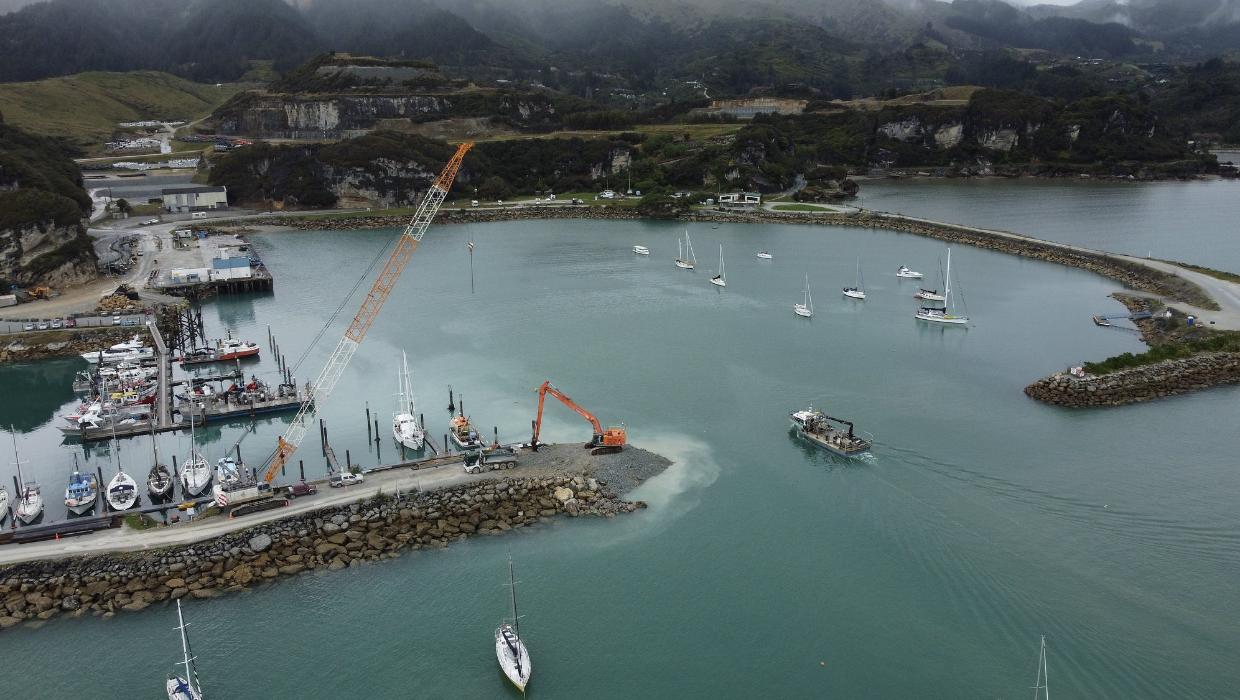The aquaculture industry is trialling biodegradable gear ties in a bid to cut marine plastic waste, while the community trust could channel up to half a million dollars annually into Golden Bay projects.
Marine Farming Association general manager Ned Wells told the Golden Bay Community Board on Monday the industry was testing biodegradable ties designed to break down safely without producing microplastics.
“The goal is to get them to degrade at just the right rate — strong enough during use, but safe for the environment afterward,” he said.
The ties were made from materials like polymer and organic additives, designed to break down into carbon, which would be safely consumed by microbes if they ended up in the sea.
Wells also outlined the aquaculture industry's environmental initiatives and contributions to the local community. He said a new community trust tied to water space revenues was “ramping up”.
“Once fully developed, the site could generate about $500,000 annually for community projects.”
When asked about the time frame, Wells said development was ongoing, with the first crop of greenshell mussels expected to be ready for harvest from late next year.
“Five [years] at most. Certainly, not 10.”
“There’s some revenue starting to come through and as the status development happens, there will be an increasing amount of money coming in.”
Clearwater Mussels and United Fisheries also donated profits from specific mussel lines to Golden Bay High School every year, a programme Wells said mirrored others nationwide.
Representing the sector that included salmon, oyster, and mussel growers — about 70% of New Zealand’s aquaculture production — Wells emphasised efforts to mitigate environmental impacts and support communities.
In 2023, the association contributed nearly 2900 hours to beach clean-ups, collecting more than 4400 kg of debris, of which he said only 38% was related to aquaculture.
Wells noted a “positive trend” in waste reduction over the 15-year life of the programme. “In Tasman Bay, for example, we're collecting more general rubbish than aquaculture waste now,” he said.
Addressing concerns about aquaculture debris such as ropes and floats, Wells acknowledged that storm events had caused float losses in the past.
However, new float technologies, such as clamp and pin designs, were significantly reducing these incidents. Many of the new attachments are retrofittable, meaning old floats wouldn’t need to be discarded.
Source - https://www.thepress.co.nz













